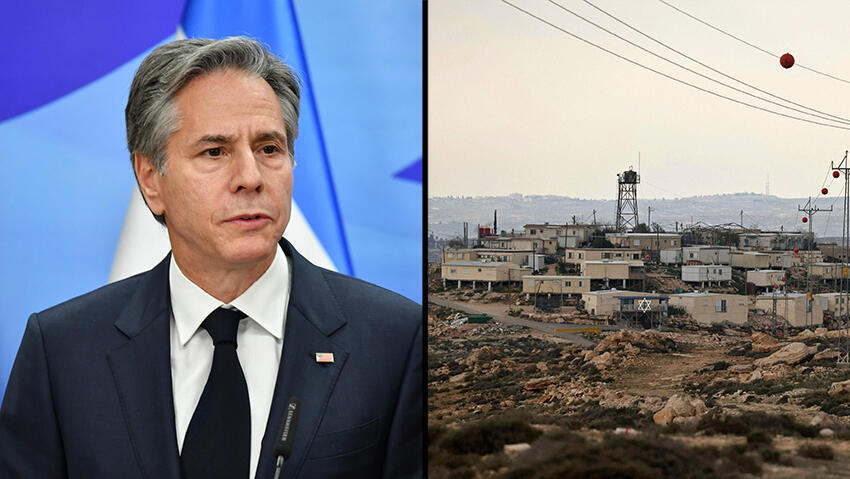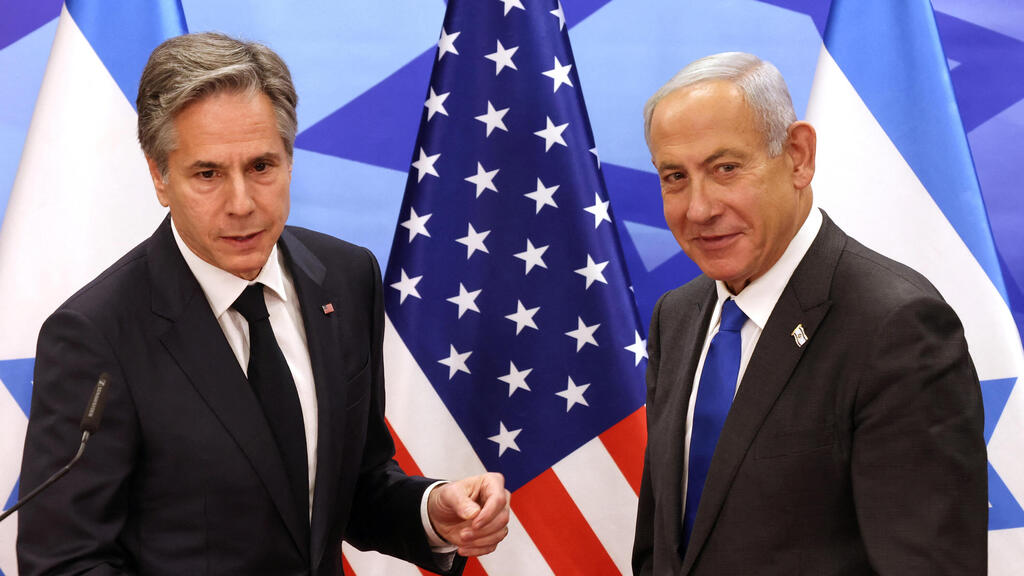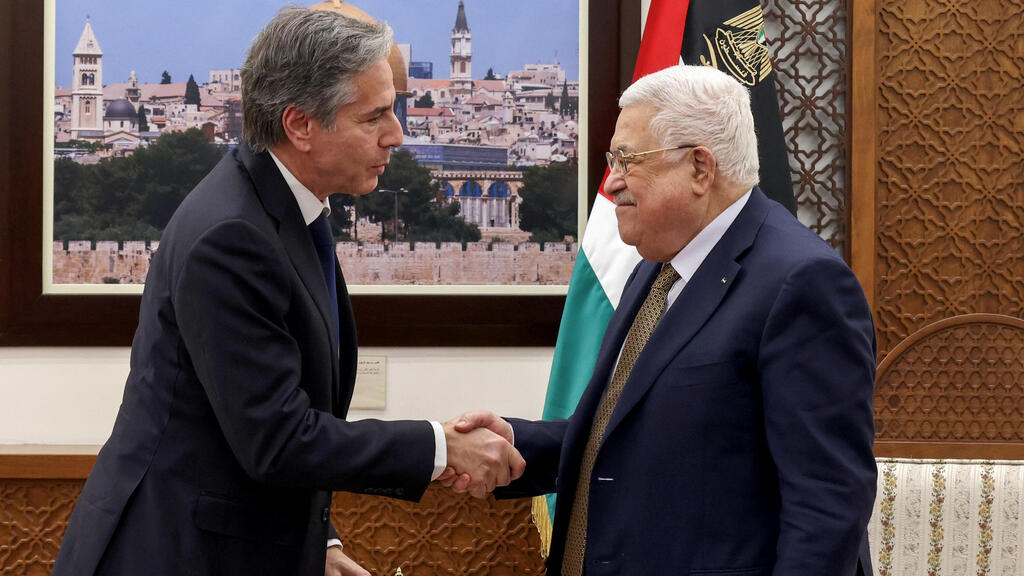U.S. Secretary of State Antony Blinken spoke with Prime Minister Benjamin Netanyahu late on Saturday, to express the administration's concerns over Israel's settlement policies.
Blinken told the prime minister the U.S. opposed any moves that would endanger a future two-state solution.
"The secretary underscored the urgent need for Israelis and Palestinians to take steps that restore calm and our strong opposition to unilateral measures that would further escalate tensions," the State Department said in a statement. "The secretary and prime minister also discussed broader regional challenges, including the threats posed by Iran, and the Secretary underscored our ironclad commitment to Israel’s security," the statement read.
Earlier, Blinken spoke with Palestinian President Mahmoud Abbas to reaffirm the U.S. commitment to a negotiated two-state solution "and opposition to policies that endanger its viability," according to the State Department.
The remarks came less than a day after U.S. Ambassador Thomas R. Nides called on Prime Minister Benjamin Netanyahu to “pump the brakes” on the judicial reforms sparking turmoil in Israel, which Blinken did not mention.
Thomas R. Nides calls on Prime Minister Benjamin Netanyahu to 'pump the brakes' on judicial reforms
(Twitter)
“The one thing that binds our countries together is a sense of democracy and a sense of [the importance of] democratic institutions,” Nides said in an interview to CNN"s Dave Axelrod.
"When we believe that those democratic institutions are under stress and strain we’re articulating [our concern]. That’s what we’re doing now,” he said.
Neither of the State Department's statements on Saturday mentioned the proposed U.N. Security Council resolution demanding an immediate halt to Israeli settlements. The Palestinians want to bring that resolution to a vote on Monday. And neither statement gave any indication as to how the calls ended.
But diplomats familiar with the conversations said that in his call to Abbas, Blinken reiterated an offer to the Palestinians for a U.S. package of incentives to entice them to drop or at least delay the resolution.
“The secretary underscored the urgent need for Israelis and Palestinians to take steps that restore calm and our strong opposition to unilateral measures that would further escalate tensions,” the statements said.
Those incentives included a White House meeting for Abbas with President Joe Biden, movement on reopening the American consulate in Jerusalem, and a significant aid package, the diplomats said.
Abbas was noncommittal, the diplomats said, but also suggested he would not be amenable unless the Israelis agreed to a six-month freeze on settlement expansion on land the Palestinians claim for a future state.
Blinken then called Netanyahu, who, according to the diplomats, was similarly noncommittal about the six-month settlement freeze. Netanyahu also repeated Israeli opposition to reopening the consulate, which was closed during President Donald Trump’s administration, they said.
The U.S. and others were hoping to resolve the deadlock on Sunday, but the diplomats said it was unclear if that was possible,
The drama arose just ahead of the one-year anniversary of the Russian invasion of Ukraine, which will be the subject of special U.N. General Assembly and Security Council sessions on Thursday and Friday.
The U.S. opposes the Palestinian resolution and is almost certain to veto it. Not vetoing would carry a considerable domestic political risk for Biden on the cusp of the 2024 presidential race and top House Republicans have already warned against it.
But the administration also fears that using its veto to protect Israel risks losing support at the world body for measures condemning Russia’s war in Ukraine.
6 View gallery
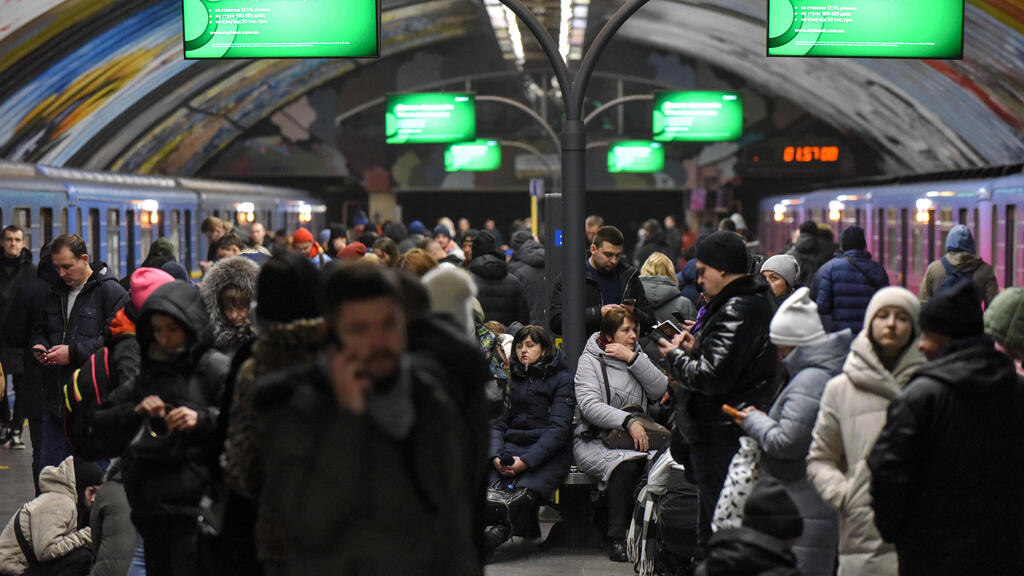

Ukrainians shelter in underground train stations as Russia launches massive strike on cities
(Photo: EPA)
Senior officials from the White House, the State Department and the U.S. Mission to the U.N. have already engaged in frantic but fruitless diplomacy to try to persuade the Palestinians to back down. The dire nature of the situation prompted Blinken’s calls on Saturday, the diplomats said.
The Biden administration has already said publicly that it does not support the resolution, calling it “unhelpful.” But it has also said the same about recent Israeli settlement expansion announcements.
6 View gallery
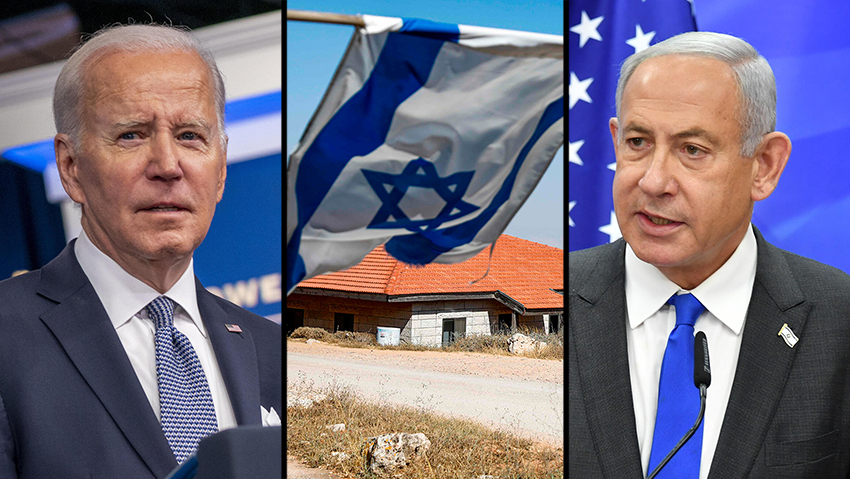

Joe Biden, Israeli settlement movement, and Benjamin Netanyahu
(Photo: Yoav Dudkevitch, EPA ,AFP)
U.N. diplomats say the U.S wants to replace the Palestinian resolution, which would be legally binding, with a weaker presidential statement, or at least delay a vote on the resolution until after the Ukraine war anniversary.
The Palestinian push comes as Israel’s new right-wing government has reaffirmed its commitment to construct new settlements in the West Bank and expand its authority on land the Palestinians seek for a future state.
Ultranationalists who oppose Palestinian statehood comprise a majority of Israel’s new government, which has declared settlement construction a top priority.
6 View gallery
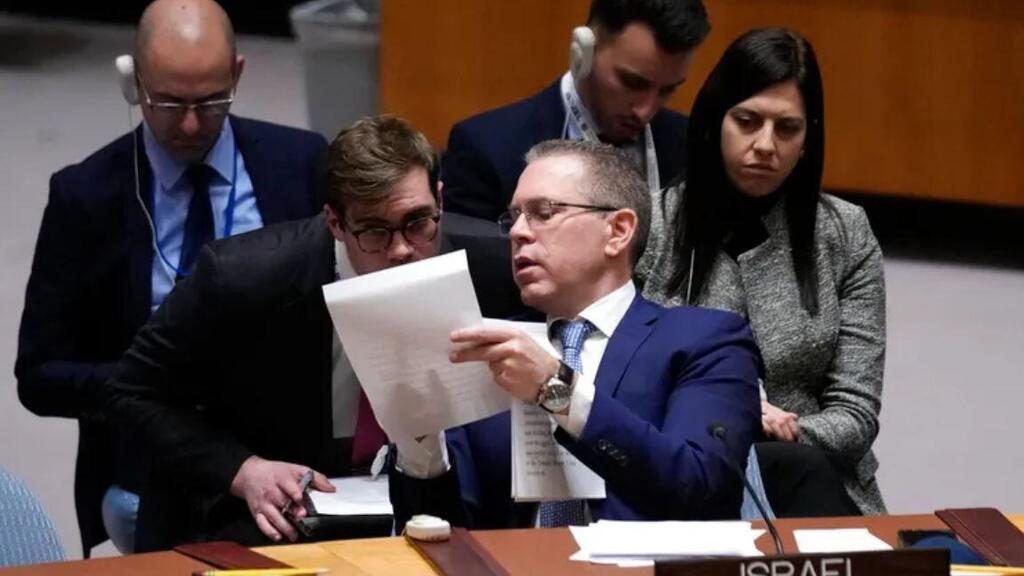

Gilad Erdan, Israeli Ambassador to the United Nations, participates in a Security Council meeting at United Nations headquarters
(Photo: AP Photo/Seth Wenig via i24NEWS)
The draft resolution, circulated by the United Arab Emirates, the Arab representative on the council, would reaffirm the Security Council’s “unwavering commitment” to a two-state solution with Israel and Palestine living side-by-side in peace as democratic states.
It would also reaffirm the U.N. Charter’s provision against acquiring territory by force and reaffirm that any such acquisition is illegal.
Last Tuesday, Blinken and the top diplomats from Britain, France, Germany and Italy condemned Israel’s plans to build 10,000 new homes in existing settlements in the West Bank and retroactively legalize nine outposts. Netanyahu’s Cabinet had announced the measure two days earlier, following a surge in violence in Jerusalem.


